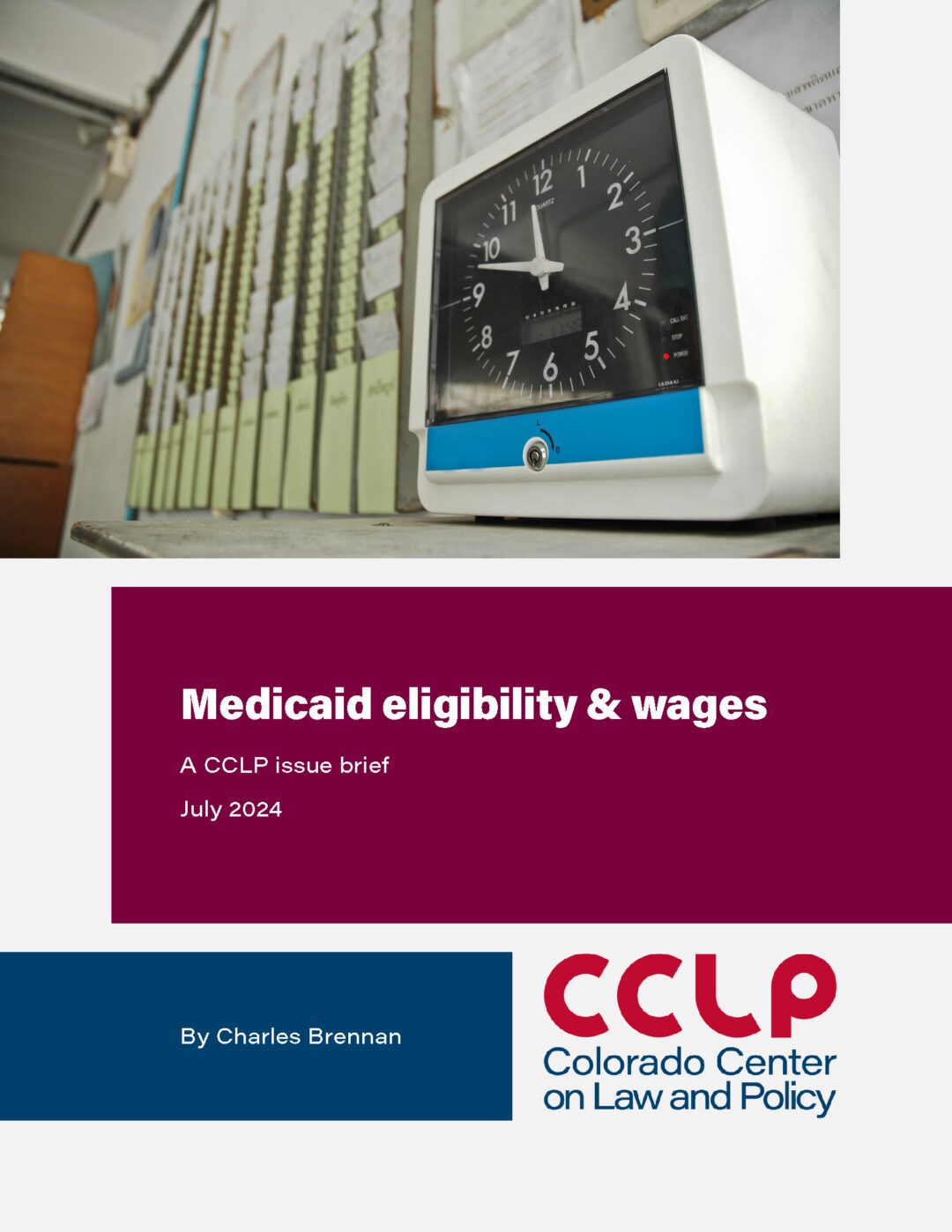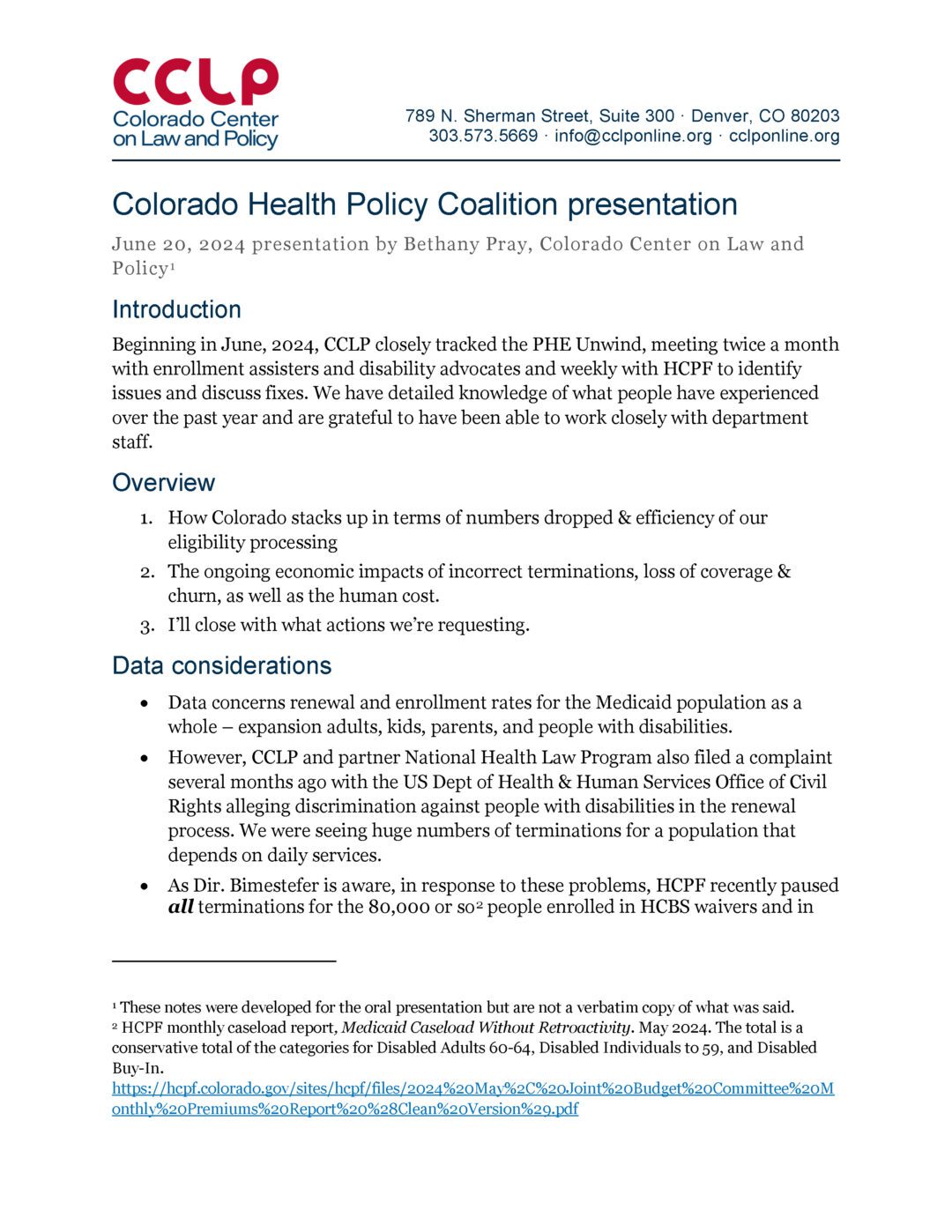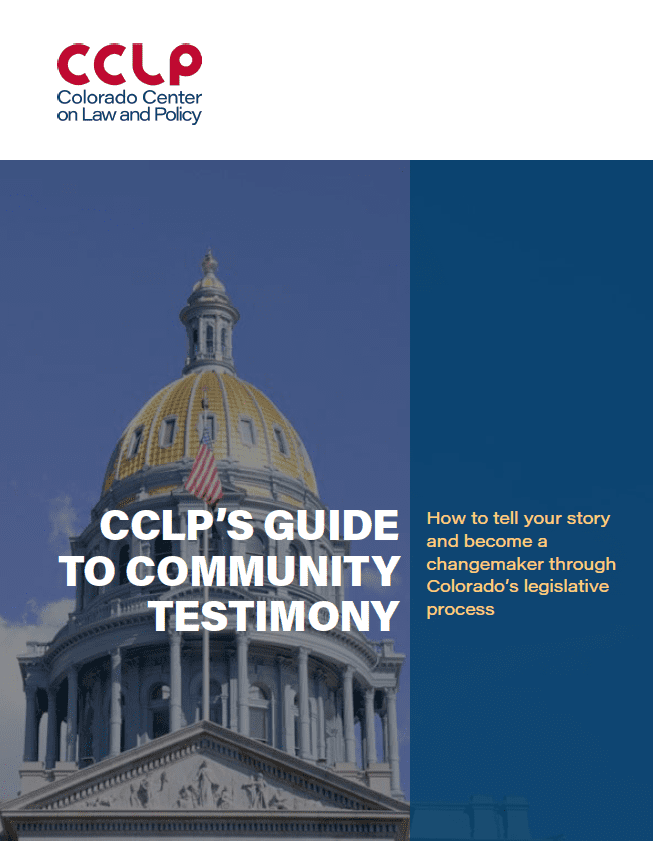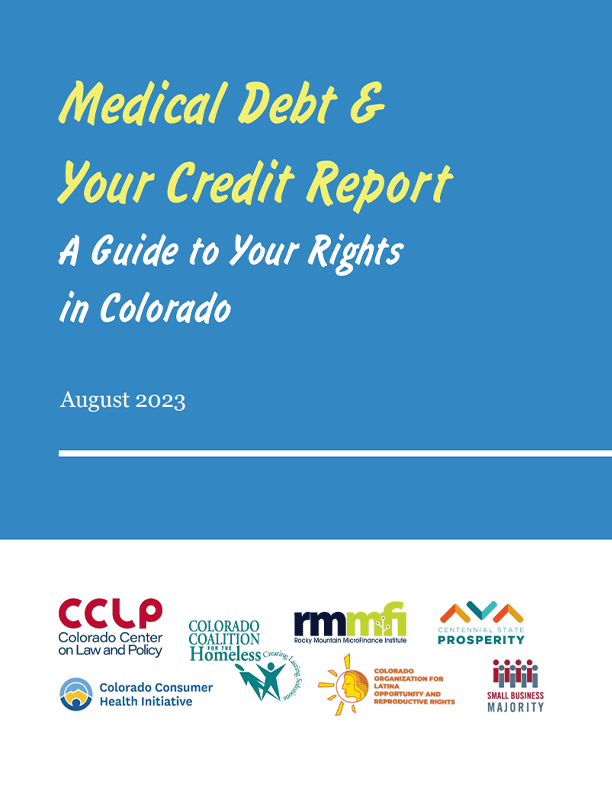View File
As CCLP moved through 2007, we were fortunate to grow as an agency, to work toward solving some of Colorado’s most pressing challenges, and to welcome several new members to our team – bright, talented people who care deeply about our mission and who demonstrate that talent and commitment through their work.
Liz Feder joined CCLP early in 2007 as part of our growing health policy staff. As the Health Policy Analyst, Liz brings tremendous experience in policy research, local and state government, and higher education.
Adela Flores-Brennan returned to CCLP this year, after having worked here from 1999 to 2002. For much of 2007, she served as Federal Budget Analyst, before moving to the Health Care Attorney position.
We were able to expand our health care capacity thanks to the generosity of the Colorado Health Foundation, as well as the ongoing support of the Rose Community Foundation and The Denver Foundation.
Scott Downes joined CCLP in early 2007 as our first full-time Communications Director, coming to us from the political arena. His work has made an extraordinary difference in getting out the important information and work of CCLP and COFPI.
Tracey Stewart was brought on to serve as Self-Sufficiency Project contractor and then as full-time Project Coordinator, where she’s led the charge to get the innovative VisionKEI Self-Sufficiency Calculator up and running. She is now embarking on a statewide education and outreach effort to promote the 2008 Colorado Self-Sufficiency Standard and the Calculator to key stakeholders. You can access this tool yourself by going to our website at www.copolicy.org.
Marty Esquibel started as a Fiscal Analyst with COFPI in December 2007…the same week he and his wife had a brand new baby boy!
Along with Rita Young, Nilmini Hecox, Carol Hedges, Elisabeth Arenales, Kathy White, and Ed Kahn, we’ve grown in both staff and scope. Our people make our programs that much stronger. We know we provide a unique voice in Colorado, and the biggest challenge we face is making sure people hear it. Our focus is sharper, our resolve stronger, and our work and its results are slowly but surely instigating the kind of change we all want and hope for in Colorado.
For a nearly a decade now, we have wrestled with the question of what kind of Colorado do we want to live in and have our children inherit? What kind of health care system do Coloradans need, and how do they best access it? And what will it take to ensure that all Coloradans can pay for their basic needs?
At CCLP, we strive to play a central role in answering these vital questions, and in finding solutions to the very real problems that impact Coloradans. When families are facing the kinds of challenges they now face, with huge increases in food and gas prices, transportation and utility costs, and health care and housing prices, something must be done.
We have played an integral role in trying to help solve some of Colorado’s biggest challenges, whether it’s shaping the debate about health care reform, developing comprehensive fiscal reform, or promoting policies that move more people toward economic self-sufficiency. We have a seat at the table and we’re making our voice heard.
None of the progress we must make will happen by accident. It will take the work of all of us, the coordination of our important coalition partners, and the tremendous support of all of you. As Martin Luther King, Jr. once said, “Human progress is neither automatic nor inevitable… Every step toward the goal of justice requires sacrifice, suffering, and struggle; the tireless exertions and passionate concern of dedicated individuals.”
At CCLP, we honor and thank all the dedicated individuals, including all of our generous donors, supporters, volunteers, and wonderful partners, that we are so fortunate to work with every day to make Colorado a better place.
CCLP is turning 26! Join us for our annual birthday celebration August 1st, 5-7 p.m.
RSVP today!





